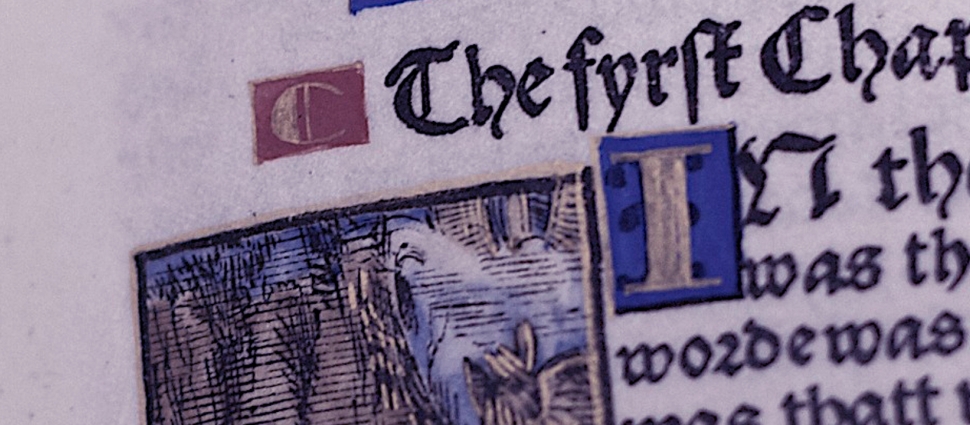Proto-Puritan William Tyndale (1)

Nov 9, 2018
Life in England
Recently, I have been immersing myself in the life and work of William Tyndale (c.1494–1536). Some time ago on this blog, I considered his biblical exegesis and called him (in agreement with many others) a proto-Puritan, which simply identifies him as an “early-stage” (a prototype!) Puritan decades before the term even arose. My current study convinces me even more of this idea especially with his convictions on Scripture and covenantal formulations. So, this will be the first of a five-part series where we consider this idea through his life in England, his time and death in “exile,” his Bible translation, his works, and his theology.
Tyndale was an Oxford man in terms of university education but not regarding his convictions on the Bible. Born in Gloucestershire, which borders south-eastern Wales, he studied at Oxford’s Magdalen College for a Bachelor’s degree in 1512 and a Master’s in 1515, the same year he was ordained as a priest. Most important to his later work, Oxford schooled him in grammar, logic, rhetoric (the art of persuasion), Latin, and some Greek. Yes, he also learned theology, though later complaining that students were discouraged from independent Scripture study and expected to receive church doctrine without challenge. Christian Humanist John Colet was an exception at Oxford (and during Tyndale’s years there) with his Bible teaching and ‘heretical’ challenges to the church. Likely, Tyndale came to Oxford already embracing a grassroots Lollard tradition descending from John Wycliffe, which encouraged biblical teaching and Christian piety. He was known for both at Oxford.
With little to go on up to 1522, Tyndale possibly studied Greek at Cambridge, no doubt catalyzed by the Cambridge teaching tour (1511–1514) of Erasmus, who shortly afterwards published his Greek New Testament (1516). This work (especially the 1522 edition) was essential to Tyndale’s formation as a translator. Luther’s teaching on justification was also stirring up Cambridge by then, and if there, Tyndale would have been affected. He also got to know some Cambridge Protestants (most notably John Frith and Miles Coverdale), though we can only speculate about his presence at the White Horse Inn (“Little Germany”) discussions on Luther at the time. For the most part, England under King Henry VIII remained staunchly Catholic, though that soon changed (1534) especially due to Henry’s condemned push to divorce Catherine of Aragon. Still, this was a time when Luther’s writings were forbidden (to own or even read) and the translation of the Bible into English was illegal (since 1408). This was a time when six people were burned at the stake (1519) in the town of Coventry for teaching their children the Lord’s Prayer and the Ten Commandments in English, which left their kids as orphans.
Tyndale returned to Gloucestershire in 1522 to tutor the two young sons of the prominent Sir John Walsh and his wife, Anne. This move gave him a comfortable living with minimal responsibility and much time for study. He also gained a reputation for being quite the preacher. He also had a place at the Walsh dinner table, allowing lots of chats with prominent church officials who came visiting. The table talk thrust Tyndale into the public eye and under scrutiny as he zealously and skillfully defended his arguments from the Bible alone. Tyndale likely raised John and Ann’s eyebrows at times, but when he translated Erasmus’s Latin, Enchiridion militis Christiani (1503, ‘Handbook of a Christian Knight’), into English for them, they saw the sanity of Tyndale’s no-nonsense approach. Like Erasmus, he wanted to point people to the teachings of Christ and away from the externalism and superstition of the Catholic church, though Erasmus did not do so in a gospel-centered manner. Also, unlike Erasmus (who saw the need), Tyndale was proactive about getting the teachings of Scripture into the hands of the common people.
The dinner guests were no match for Tyndale, and they responded by labeling him as a rabble-rouser. The local clergy (many of whom were quite ignorant of the Scriptures and even Latin) brought him in under accusations of heresy. Thought the chancellor “reviled” him like a “dog” by (notes Tyndale), none of the charges stuck. In one famous disputation Tyndale had around this time, his opponent claimed that we are better off “without God’s laws than the pope's.” Richard Webb bears testimony (according to Foxe in Acts and Monuments) to Tyndale’s most fitting and famous reply to such nonsense: “‘I defy the pope, and all his laws’; and added, If God spared him life, ere many years he would cause a boy that driveth the plough to know more of the Scripture than he did.” Tyndale certainly sensed the danger he faced and knew it was time to leave the comfort and security of the Walsh home.
Tyndale left for London (1524) yet with the purpose to get the Bible translated into English. He knew of and sought out Cuthbert Tunstall, the bishop of London, a friend of Erasmus and even provided an assistant for the second edition of his Greek New Testament (1519). Besides Tyndale’s mucky reputation likely proceeding him, Tunstall was far too prominent to get his fingers sticky helping to illegally translate the Bible into English. He brushed Tyndale off assuring that he was sure to find someone else in London. He did not, and was brought to the realization that there was “no place to do it in all England.” After a year in London (again known as quite the preacher) and in the home of cloth merchant Sir Humphrey Monmouth (a smuggler of illegal books, like those of Luther, in bales of cloth!), he saw that his only hope for a printer was in Europe where printing was more plentiful and less restrictive. Off to Germany he went. With England ever on his heart, little did he know that he left England forever.





